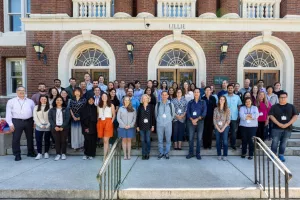MCRI tripartite mission
The MCRI is comprised of 12 principal investigators and more than 40 researchers and trainees from around the US and the world. MCRI is composed of 3 centers: the Cardiac Biology Research Center, Vascular Biology Research Center and the Center for Translational Pharmacology and Genomics.
- To understand, at the molecular level, the function of the heart and vessels in health and disease.
- To translate those fundamental discoveries into new strategies for diagnosis and treatment to improve cardiovascular care.
- To train and mentor the next generation of cardiovascular researchers.
Improving cardiovascular health through groundbreaking research
Founded in 1997, for more than 25 years, the MCRI has made substantial advances to our understanding of the underlying pathophysiology of heart attack, high blood pressure, heart failure, arrhythmia and other cardiovascular disorders. MCRI discoveries have resulted in new drugs and devices to treat heart failure and greater understanding of how hormones effect blood vessels leading to sex differences in heart disease. Ongoing studies include investigations of novel mechanisms driving ischemic cardiovascular diseases such as angina and myocardial infarction, as well as other major cardiovascular disorders, especially hypertension, congestive heart failure, pulmonary hypertension and disorders of cardiac electrophysiology.
